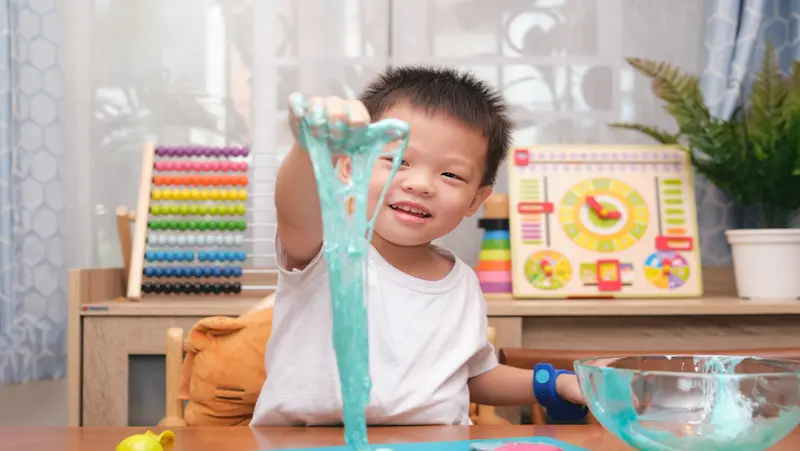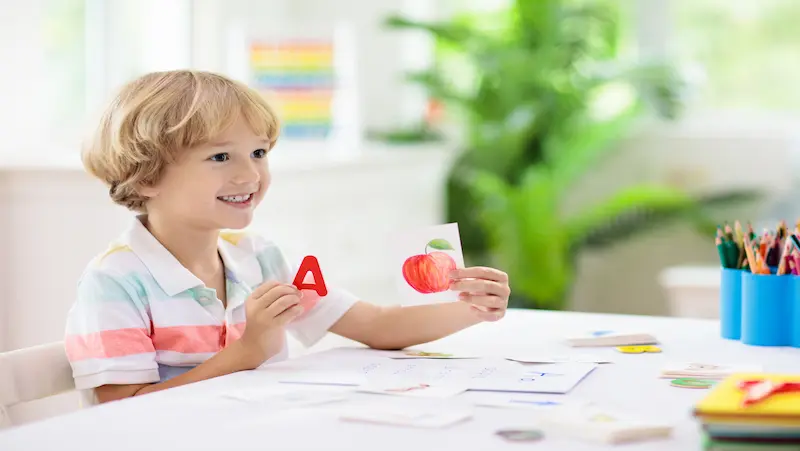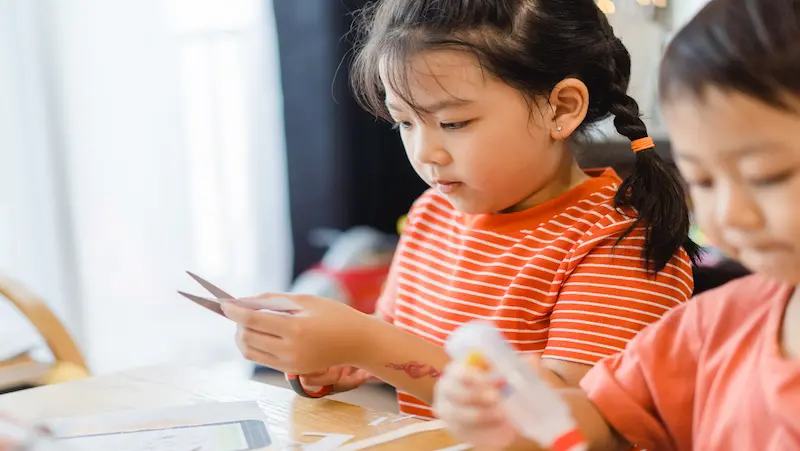Welcome to “The Ultimate Guide to Homeschooling for Preschool!” As a parent, you may be considering homeschooling as an option for your preschooler’s education, and this comprehensive guide will provide you with all the essential information to make an informed decision. Homeschooling for preschool can be a rewarding experience that nurtures your child’s curiosity and love for learning during these critical early years. Let’s explore the world of homeschooling and discover how it can benefit your little one.
Table of contents
- Introduction to Homeschooling for Preschool
- Understanding Preschool Developmental Milestones
- Designing Your Preschool Homeschool Curriculum
- Resources and Materials for Homeschooling Preschoolers
- Nurturing Social Skills and Socialization
- Assessment and Progress Tracking
- Conclusion
- Frequently Asked Questions(FAQ’s)
Introduction to Homeschooling for Preschool

What is Homeschooling?
Homeschooling involves educating your child at home instead of sending them to a traditional school. It offers a personalized and flexible approach to learning, tailored to suit your child’s unique needs and interests. Home education, also known as homeschooling, offers a personalized and flexible approach to learning. It allows students to embark on a unique educational journey tailored to their individual needs, interests, and learning styles.
Benefits of Homeschooling at the Preschool Level
Homeschooling at the preschool level provides numerous advantages, such as individualized attention, a safe learning environment, and the ability to create a strong parent-child bond.
Is Homeschooling Right for Your Preschooler?
Explore the factors to consider when deciding if homeschooling is the right fit for your preschooler. Consider your child’s personality, your family’s lifestyle, and the resources available to you.
Legal Requirements and Considerations for Homeschooling Preschoolers
Familiarize yourself with the legal aspects of homeschooling, including state regulations and requirements, to ensure compliance with local education laws.
Homeschooling requirements vary depending on the region and country, but generally involve fulfilling certain legal and educational criteria.
Understanding Preschool Developmental Milestones
Understanding your preschooler’s developmental milestones is crucial for tailoring an effective homeschool curriculum that aligns with their growth. We’ll cover cognitive, language, social, and physical development milestones.
Designing Your Preschool Homeschool Curriculum
Curriculum planning is the process of designing and organizing a structured educational framework that outlines the subjects, topics, learning objectives, and assessment methods for a specific course or program.
Create a well-rounded and engaging curriculum for your little one with the following tips:
- Set Clear Learning Objectives
- Choose the Right Educational Philosophy
- Incorporate Play-Based Learning
- Introduce Basic Literacy and Numeracy Skills
- Explore Arts and Crafts for Preschoolers
- Engage in STEM Activities for Young Learners
- Embrace Outdoor and Nature-Based Learning
- Organizing Your Homeschool Space and Schedule
Discover how to set up a preschool-friendly learning environment and create a daily and weekly homeschool schedule that balances structured learning and free play.
Resources and Materials for Homeschooling Preschoolers

Explore a curated list of recommended books, educational apps, online resources, and educational toys to enhance your preschooler’s learning journey. Additionally, learn how to utilize everyday household items creatively for educational purposes.
Recommended Books:
- “The Very Hungry Caterpillar” by Eric Carle – An engaging book that teaches colors, counting, and the life cycle of a butterfly.
- “Brown Bear, Brown Bear, What Do You See?” by Bill Martin Jr. and Eric Carle – Introduces children to animals, colors, and simple repetitive phrases.
- “Chicka Chicka Boom Boom” by Bill Martin Jr. and John Archambault – A fun alphabet book with vibrant illustrations and rhythmic text.
- “Goodnight Moon” by Margaret Wise Brown – A soothing bedtime story that helps with vocabulary and object recognition.
- “Press Here” by Hervé Tullet – An interactive book that encourages children to engage with colors and shapes.
Educational Apps:
- ABCmouse – Offers a comprehensive early learning curriculum with interactive games and activities covering various subjects.
- Endless Alphabet – Teaches letter recognition, vocabulary, and phonics through playful animations and puzzles.
- Sago Mini World – Provides a collection of creative and educational games that enhance problem-solving skills and creativity.
- Khan Academy Kids – Offers interactive lessons and activities for math, reading, and social-emotional development.
- Duolingo ABC – A fun app to introduce your preschooler to basic reading and writing in multiple languages.
Online Resources:
- PBS Kids – Provides educational videos, games, and activities aligned with PBS television shows.
- Starfall – Offers interactive reading and math lessons for preschoolers.
- National Geographic Kids – Features informative videos and articles about animals, nature, and science.
- ABCya – Provides educational games covering various subjects, including math, reading, and art.
- Scholastic Learn at Home – Offers daily learning experiences and activities for preschoolers.
Educational Toys:
- Building Blocks – Promote creativity, spatial skills, and fine motor development.
- Puzzle Sets – Enhance problem-solving and cognitive skills while having fun.
- Play-Doh – Encourages sensory play and fosters imagination and creativity.
- Shape Sorters – Help with shape recognition and hand-eye coordination.
- Magnetic Letters and Numbers – Support early literacy and numeracy skills while playing with magnets on a magnetic board.
Utilizing Everyday Household Items:
- Use measuring cups and spoons in the kitchen to introduce basic math concepts like measurements and fractions.
- Turn cardboard boxes into imaginative playhouses or forts to stimulate creativity.
- Sort and classify different colored socks or toys to teach colors and sorting skills.
- Create a DIY nature exploration kit with a magnifying glass, small containers, and a notebook for outdoor learning adventures.
- Use empty egg cartons to practice counting, sorting, and even introduce simple addition and subtraction.
Nurturing Social Skills and Socialization
Homeschooling doesn’t mean your child will miss out on socialization opportunities. We’ll explore ways to nurture social skills through playdates, homeschooling groups, community activities, and more.
Here are some examples of how you can nurture social skills for your homeschooled preschooler:
- Playdates: Organize regular playdates with other homeschooling families or friends who have preschoolers. These informal gatherings allow children to interact, play, and learn together in a relaxed environment.
- Homeschooling Co-ops: Join or create a homeschooling co-op in your community. Co-ops offer opportunities for group learning, field trips, and shared educational activities, fostering a sense of community among both children and parents.
- Community Classes and Activities: Enroll your child in community-based classes such as art, music, dance, or sports. These activities provide a chance to interact with peers and develop teamwork and cooperation skills.
- Library Storytime: Attend library storytime sessions tailored for preschoolers. These events encourage social interaction with other children while enjoying storytelling and early literacy activities.
- Local Park or Playground: Take your child to local parks or playgrounds regularly. Playing with other children in a public setting helps develop social skills, sharing, and turn-taking.
- Local Events and Festivals: Participate in community events and festivals that are family-friendly. These gatherings provide opportunities for children to mingle with other kids and engage in age-appropriate activities.
- Volunteering: Involve your child in age-appropriate volunteer opportunities, such as helping at a local animal shelter or participating in community clean-up activities. Volunteering fosters empathy and a sense of responsibility towards others.
- Online Homeschooling Groups: Join online homeschooling communities or social media groups focused on preschool homeschooling. These platforms provide opportunities to connect with other homeschooling families and exchange ideas and resources.
- Outdoor Nature Groups: Join nature-based homeschooling groups that organize outdoor activities and hikes. Nature-based learning encourages exploration and cooperation with other children in a natural setting.
- Cultural and Educational Events: Attend cultural or educational events in your area, such as museum exhibits or local festivals. These events expose your child to diverse experiences and help them interact with others from different backgrounds.
Assessment and Progress Tracking

Informal assessment techniques can provide valuable insights into your preschooler’s progress without the pressure of formal testing. Here are some examples of informal assessment techniques you can use to gauge your child’s development and celebrate their achievements:
- Observation: Observe your child during playtime, learning activities, and everyday interactions. Note their interests, strengths, areas of improvement, and any milestones they achieve.
- Portfolio: Create a portfolio of your child’s work, including drawings, paintings, crafts, and other projects. This collection allows you to track their progress over time and celebrate their creativity.
- Anecdotal Notes: Keep a journal of significant moments or milestones your child reaches. Write down notable achievements, breakthroughs, and areas where they excel.
- Conversations: Engage in casual conversations with your preschooler about what they have learned or experienced. Ask open-ended questions to encourage them to share their thoughts and feelings.
- Play-Based Assessment: Use play as a means of assessment. Engage in games and activities that involve problem-solving, critical thinking, and cooperation to assess their cognitive and social development.
- Storytelling: Encourage your child to create and tell stories. This activity assesses their language development, creativity, and ability to express ideas.
- Art Display: Proudly showcase your child’s artwork around the house. This not only boosts their confidence but also allows you to observe their progress in fine motor skills and creative expression.
- Reading Progress: Observe your child’s reading skills by listening to them read aloud. Celebrate their growth as they recognize letters, sight words, and read simple sentences.
- Math Games: Play math-related games that involve counting, sorting, and basic arithmetic to assess their numeracy skills.
- Physical Milestones: Track your child’s physical development, such as gross and fine motor skills, through activities like climbing, jumping, drawing, or building with blocks.
Ways to Celebrate Achievements:
- Praise and Encouragement: Offer genuine praise and encouragement when your child accomplishes something, no matter how small. Positive reinforcement boosts their confidence and motivation to learn.
- Display Their Work: Proudly display your child’s artwork, projects, and crafts on a dedicated wall or bulletin board. Celebrating their creativity enhances their sense of accomplishment.
- Celebratory Family Time: Plan a family celebration to acknowledge your child’s achievements. It could be a special dinner, a picnic, or a day at the park.
- Special Treats: Offer a small treat or reward when your child achieves a learning milestone. It could be their favorite snack or a fun outing.
- Share with Loved Ones: Encourage your child to share their accomplishments with grandparents, aunts, uncles, and close friends. A phone call or video chat can be a great way to celebrate together.
- Keep a Progress Journal: Create a progress journal or scrapbook to document your child’s achievements. This tangible record can be cherished and revisited in the future.
Check out homeschool science curriculum.
Conclusion
Homeschooling for preschool can be an incredibly enriching experience for both you and your child. By providing a supportive and stimulating learning environment, you can lay the foundation for a lifelong love of learning and exploration. Embrace the journey, and remember that you have the flexibility to tailor your child’s education in a way that best suits their needs and interests.
Explore the BrightCHAMP blog page to discover educational insights, tips, and strategies to enhance your child’s learning experience.
At BrightChamps, we believe that educators are the driving force behind every student’s success. That’s why we offer a suite of tools designed to empower teachers, streamline administrative tasks, and enhance interactive teaching. Our goal? To enable educators to focus on what truly matters – inspiring young minds.
Frequently Asked Questions(FAQ’s)
A1: Yes, homeschooling for preschoolers is legal in most countries and states. However, specific regulations and requirements may vary depending on your location. It’s essential to research and comply with the legal obligations related to homeschooling preschoolers in your area.
A2: The amount of time spent on homeschooling for preschoolers can vary depending on your child’s age, attention span, and learning style. Typically, preschoolers may engage in educational activities for 1 to 2 hours a day. However, it’s crucial to keep the sessions short, fun, and interactive to maintain their interest and enthusiasm.
A3: It’s not uncommon for some preschoolers to resist homeschooling initially. To address this, try to make learning engaging and enjoyable by incorporating play-based activities and focusing on your child’s interests. Be patient and flexible, allowing your child to take breaks when needed. Slowly ease them into the routine, and over time, they may become more receptive to homeschooling.
A4: Socialization is essential for preschoolers’ development. To ensure your child gets enough social interaction, consider the following:
Organize playdates with other homeschooling families or friends with similar-aged children.
Join local homeschooling groups or co-ops that offer social activities and field trips.
Participate in community events and classes tailored for preschoolers.
Encourage your child to engage in group activities, sports, or extracurricular programs.
A5: Absolutely! Homeschooling allows you the freedom to mix and match various approaches to create a personalized curriculum that suits your child’s learning style. You can combine elements from different educational philosophies, such as Montessori, Waldorf, or Reggio Emilia, and integrate play-based learning with structured lessons. Tailoring the curriculum to your child’s strengths and interests can make learning more enjoyable and effective.


 We are an army of educators and passionate learners from BrightChamps family, committed to providing free learning resources to kids, parents & students.
We are an army of educators and passionate learners from BrightChamps family, committed to providing free learning resources to kids, parents & students.







